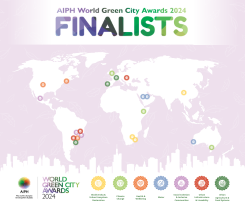
Photo: California
California and World Bank sign deal to export low-carbon expertise to China
18 November 2016
by Steve Hoare
The World Bank and the state of California have signed an agreement to help Chinese cities with their low-carbon efforts before sharing the expertise with other cities around the world.
The Memorandum of Understanding (MoU), which was signed at the UN Conference of the Parties on Climate Change (COP22) in Marrakech, builds on California’s existing cooperation with a number of Chinese sub-national governments.
“The MoU is to build on California’s existing relationship with Chinese cities; also the Chinese cities have pledged early emissions peaking, which California is keen to share its experience to help those cities achieve the targets,” said Xueman Wang, World Bank Project Manager of the Global Platform for Sustainable Cities.
“China’s low-carbon city programme has expanded to 100 cities and provinces. More than 30 of them have pledged to peak their emissions much earlier than the national target of peaking by 2030,” said Jiang Zhaoli, Deputy Director General of the Climate Change Department of China’s National Development Reform Commission.
“Chinese cities are very ambitious,” Wang told Cities Today, “with plans to cut 40 percent from carbon emissions by 2020. They want to know what is the pathway. How can a city maintain growth while cutting emissions.”
As an early mover on climate policy, California passed a landmark bill to reduce emissions by 40 percent below 1990 levels by 2030. It has committed–through the Under2 Coalition agreement–to reduce its emissions to 80 to 95 percent below 1990 levels, or to less than 2 metric tonnes per capita, by 2050. Since 2000, the state has reduced its overall carbon footprint despite population growth and a strong economy.
The agreement will see California become a technical partner of the Bank’s Global Platform for Sustainable Cities, which covers nearly 30 cities across 11 pilot countries: Brazil, China, Cote d’Ivoire, India, Malaysia, Mexico, Paraguay, Peru, Senegal, South Africa, and Vietnam.
The Platform is mirrored by the World Bank’s Climate Action Plan, which commits the organisation to increasing the climate-related share of its portfolio from 21 to 28 percent by 2020 and potential financing of US$29 billion per year by that date.










